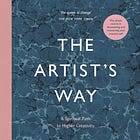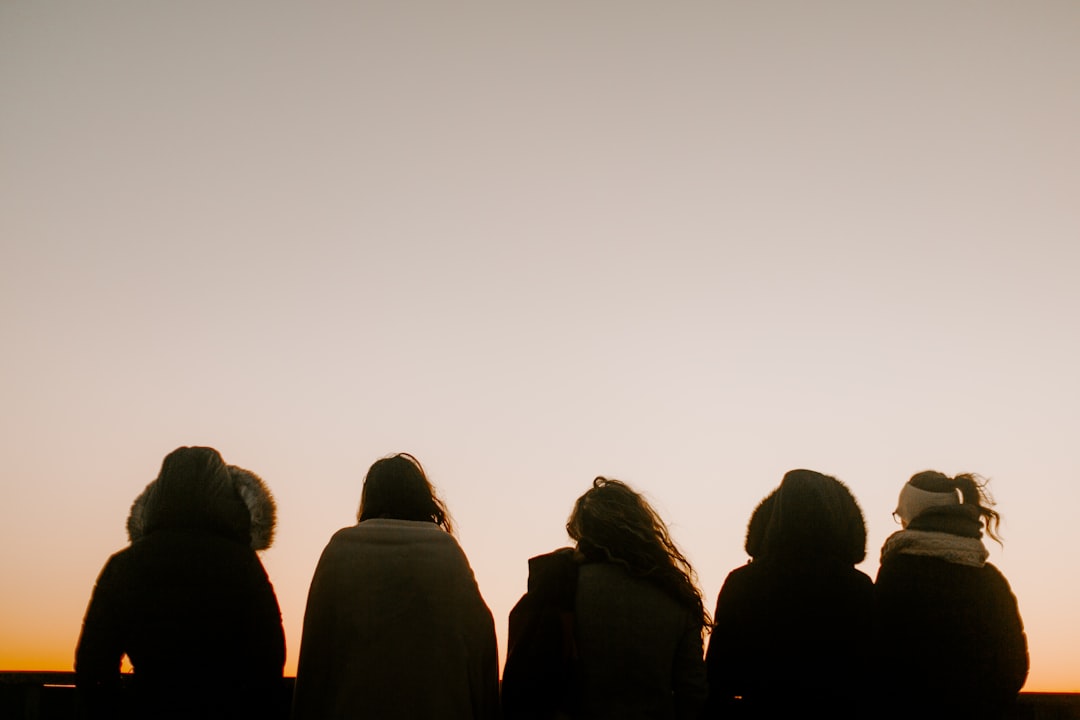‘In The Thick Of It’ is an entirely reader-supported and funded publication—so if you’d like to continue to receive content and have access to the full archive, consider supporting my work with a paid subscription.

I don’t know about you, but my friendship expectations have shifted exponentially over the last few years.
While there was a time when I happily floated in and out of my friendships with barely a worry (or expectation) in the world, recently I’ve found myself craving more from the important friendships in my life. I want to feel grounded in my relationships and know that the nourishment I’m so willing to offer my friends, is returned in kind.
Upon reflection, I’m not entirely sure where this new sentiment has come from. To some degree, I’m sure, this is simply part of the ageing process as in our twenties, we are all so consumed with our own lives that our friendships can feel like they’re on the periphery—supporting characters in our own Hero’s Journey. To a certain extent, this makes sense considering the transitions and transformations that occur during this period are often immense. For some of us, we are swimming in the pool of our first great love, while others may be steadfast in their dedication to climbing the career ladder.
But once we reach our thirties, there seems to be a slowing down in terms of the pace of our life. We long to feel more grounded—tethered to the people and places we love in a way we perhaps haven’t felt the need to before. In my own experience this certainly rings true as it wasn’t until my early thirties that I began to zoom out of the career rat race to forge my own path, setting aside the late nights and busy weekends filled to the brim with social commitments. More than anything, however, it has been motherhood that has transformed the way I view my friendships.
Never before have I felt so distanced from my friends, whilst also longing to hold them close. Having another human rely on you for their very existence is an experience that is all-consuming and unfortunately, our friendships are often the one burner in our lives that gets turned down—even if just for a short time. It is also a season which to me, feels like the great equaliser. You will be surprised by who turns up at your door, picks up the phone and makes the effort to accept you despite the fact that you’re unable to form a full sentence or wash your hair. But equally, there will be friendships that you need to grieve when you realise that your new day-to-day reality is not something others have the capacity—or willingness—to hold space for.
In my experience, there were certainly some long-standing friendships that simply faded into the darkness when I became a mother—even when I’d hoped that the opposite would be true. There were friends—some mothers already themselves—who I thought would be that ear of understanding, the mirror I so needed. And to be honest, it has taken a long time to accept that sometimes it has nothing to do with me, our paths have just diverged, rather than intersected.
In contrast, becoming a mother has also entangled me with women I never would have met had it not been for the shared experience of having children—and some of them, I know, will be in my life forever. This is a gift I never saw coming and perhaps one of the reasons I feel so strongly about carving out more space for these important relationships. I want to commit to these women with my time, energy and love. And I now expect the same in return—unapologetically.
The question is, how do we navigate this new pathway to a deeper level of friendship whilst also ensuring our expectations are being met?
There’s no question that the era of social media has made us feel more connected than ever before. But research also shows how despite our constant ‘availability’ and our ability to stay connected, the more time we spend on social media, the higher levels of loneliness we’re likely to experience—especially for those of us who use social media as the means through which we maintain relationships. Our reliance on social media and our devices also makes it easier for us to disconnect and ‘flake’ on our friendships.
Recently, the writer
took a deep dive into the phenomenon of ‘flaking’, exploring how while for many of us it’s a deal breaker—for others, it’s the ultimate sign of love. While I urge you to go and read the full article as it’s utterly brilliant—it certainly made me contemplate how my own expectations vary from friendship to friendship. I remain unsure as to whether this is a positive trait, but if I scrape beyond the surface, I feel it’s probably a bit of a self-protection tool so that I don’t experience that familiar pang of disappointment when someone flakes on me or cancels plans last minute.There are friends in my life who I know will make a plan, stick to it and follow through—every time. And as a result, I return the expectation without a second thought. It feels effortless. But there are also friendships in my life that I would consider to be even more important, women who I see as belonging in my very inner circle who flake regularly—and this doesn’t seem to bother me. Sure, I crave their company and—as a mum of two who really doesn’t have a buzzing social life anymore—I wholeheartedly look forward to these interactions. When they’re pulled out from under me, I’m often left feeling disappointed—but this disappointment is strangely not directed at my friend. I’m happy to let them off the hook as I innately know that their flakiness is not coming from a place of malice, they’re just busy. So in a way, I guess my friendship expectations are lowered.
What matters most to me however, is that I am considered by others to be a good friend rather than simply ‘good at friendship’—and there is a distinction. In her powerful and poignant book Friendaholic, author Elizabeth Day peels back the layers on friendship and explores how and why our friendship expectations vary so greatly. She also examines the existing research on friendship and explains why it’s natural, normal and necessary to ‘prune’ back our friendships and allow them to evolve as we evolve. Not every friendship is going to stand the test of time—and that’s okay. The important thing is to recognise what relationships are filling us with joy and energy, rather than leaving us depleted, depressed or questioning why we’re friends in the first place. Once we do that, we’re better equipped to throw our love and attention at the people that truly matter most. And no doubt, reap the rewards of these relationships with every cell in our being.
Perhaps I’m just feeling reflective as this year comes to a close, but I’m also feeling hopeful that as another season begins to bloom, my friendships will also continue to blossom. That’s my expectation anyway.







